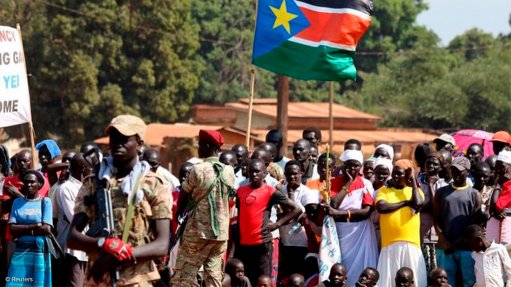
Photo by: Reuters
The United Nations Security Council (UNSC) has unanimously adopted a resolution renewing sanctions – including a travel ban and asset freeze, on those designated to be blocking peace, security and stability in South Sudan – until May 31, 2018.
The renewing of the sanctions came as the world marked the International Day of UN Peacekeepers on Thursday. Some 3 000 “blue helmets” have died on duty since 1948.
The head of the UN peacekeeping mission in South Sudan urged the Security Council to unite behind a common strategy for advancing the political process and peace in the crisis-torn country.
Addressing the Council in New York via video link, David Shearer, the Secretary-General’s Special Representative in South Sudan and the head of the Mission, known as UNMISS, said that “unity of purpose will send the best signal to South Sudan’s political leaders to focus first and foremost on the plight of their citizens”.
He also called for a “coherent and unified regional position” to aid political developments in the country, noting that governments in the region held “significant influence” on political developments to end the three-year war, but were not communicating the same message.
Thursday’s briefing also came as South Sudan President Salva Kiir again declared a unilateral ceasefire from Juba and pledged to review the cases of political prisoners.
Shearer said these announcements were “very welcome” but that “the proof of the pudding, as they say, was in the eating”.
He noted that there would be close scrutiny on the number of prisoners released and whether the ceasefire monitoring group could perform its work.
The senior UN official also noted that Kiir had formally launched a National Dialogue this week meant to end the conflict begun in December 2013, but had excluded his political rival and former deputy, Riek Machar.
In addition, inter-communal conflicts persisted across the country, Shearer said. Among positive developments was the signing of a joint cessation of hostilities agreement between the Bor and Pibor communities in Jonglei, the result of UNMISS mediation.
Meanwhile, cyclical rains in South Sudan are expected to make roads impassable for the next four months.
While the flooding will likely curb hostilities, it also greatly complicates the humanitarian response, making over 60 percent of the country impossible to access by road or airstrips, and brings the spectre of cholera.
The humanitarian focus this month has been on the 20 000 civilians who fled to Aburoc in Upper Nile, fleeing fighting between the Sudan Peoples’ Liberation Army (SPLA) and SPLA in Opposition.
“Most arrived in a weak state – the perfect conditions for cholera to tear through their numbers,” said Shearer.